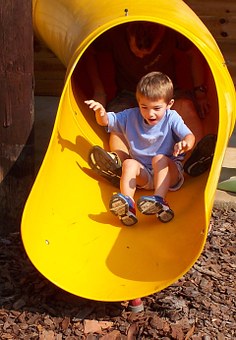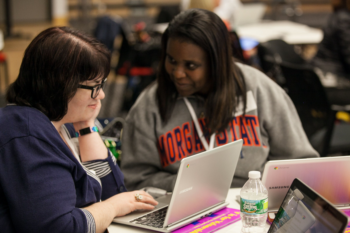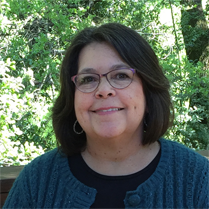Our Children’s Community Service
I just participated in a community service day at my grandchildren’s school. It was an evening of fun that included the following activities for children and their families:
- Making cards for seniors
- Creating dog toys
- Decorating blankets
- Making community garden decorations
- Collecting clothes, books, and toys

Mary Ann Burke, Ed.D., Digital Education Expert, is a substitute distance learning teacher for Oak Grove School District in San Jose, California and the author of STUDENT-ENGAGED ASSESSMENT: Strategies to Empower All Learners (Rowman & Littlefield: 2020). Dr. Burke creates digital language arts and substitute teaching K – 12 activities for teachers and parents. She is the Cofounder of the Genparenting.com blog. Burke is the former Director II of Categorical & Special Projects for the Santa Clara County Office of Education that supports 31 school districts serving 272,321 students in Santa Clara County. She is also a previous Director – State & Federal Compliance for Oakland Unified School District, the former Director – Grantwriter for the Compton Unified School District, and was the initial VISTA Director for the Community Partnership Coalition in southern California. Much of her work focuses on creating innovative digital trainings and partnership programs for teachers and families to support students’ learning. These programs were featured as a best practice at a National Title I Conference, California’s Title I Conferences, AERA Conferences, an ASCD Conference, the NASSP Conference, and statewide educator conferences.
 It has rained for days with little time for the children to play at the park. Today is my babysitting day for my three preschool grandkids! I arrive at my daughter’s home early in the morning. My daughter plans to spend her time completing a tutorial on her new computer. I plan to take the grandkids on their weekly trip to lunch, the park, and on errands. I then ask if I can purchase the 14 month old twins’ first pair of shoes and drive my grandson to preschool after taking him to his doctor’s office for a shot.
It has rained for days with little time for the children to play at the park. Today is my babysitting day for my three preschool grandkids! I arrive at my daughter’s home early in the morning. My daughter plans to spend her time completing a tutorial on her new computer. I plan to take the grandkids on their weekly trip to lunch, the park, and on errands. I then ask if I can purchase the 14 month old twins’ first pair of shoes and drive my grandson to preschool after taking him to his doctor’s office for a shot. It is difficult when we see our children struggling in school. They could be struggling academically, socially or in their relationships with their teachers. This month I will explore the idea of advocating for our children in school. Each week, we will focus on an aspect of advocacy. If you have a story about how you have advocated for your child, please share your experience. We are all comforted by knowing we are not the only ones facing problems at school with our children, and we are enriched by knowing that these problems have solutions.
It is difficult when we see our children struggling in school. They could be struggling academically, socially or in their relationships with their teachers. This month I will explore the idea of advocating for our children in school. Each week, we will focus on an aspect of advocacy. If you have a story about how you have advocated for your child, please share your experience. We are all comforted by knowing we are not the only ones facing problems at school with our children, and we are enriched by knowing that these problems have solutions.

 As a grandma of infant twin baby girls, I spend hours caring and observing their various playful antics and needs in stimulating play activities. During the first six months, infants focus their days on eating, sleeping, and exploring their world with lots of loving cuddles. As your baby becomes more mobile by rolling, crawling, pulling up, and starting to walk, you can set up stimulating play areas to encourage exploration and redirect your baby from forbidden and dangerous explorations (i.e. extension cords, outlets, and small furniture that can topple on baby). These stimulating play areas can contribute to your baby’s cognitive, social-emotional, and large muscle growth. Babies love to move around and experience their environment. They love to play
As a grandma of infant twin baby girls, I spend hours caring and observing their various playful antics and needs in stimulating play activities. During the first six months, infants focus their days on eating, sleeping, and exploring their world with lots of loving cuddles. As your baby becomes more mobile by rolling, crawling, pulling up, and starting to walk, you can set up stimulating play areas to encourage exploration and redirect your baby from forbidden and dangerous explorations (i.e. extension cords, outlets, and small furniture that can topple on baby). These stimulating play areas can contribute to your baby’s cognitive, social-emotional, and large muscle growth. Babies love to move around and experience their environment. They love to play